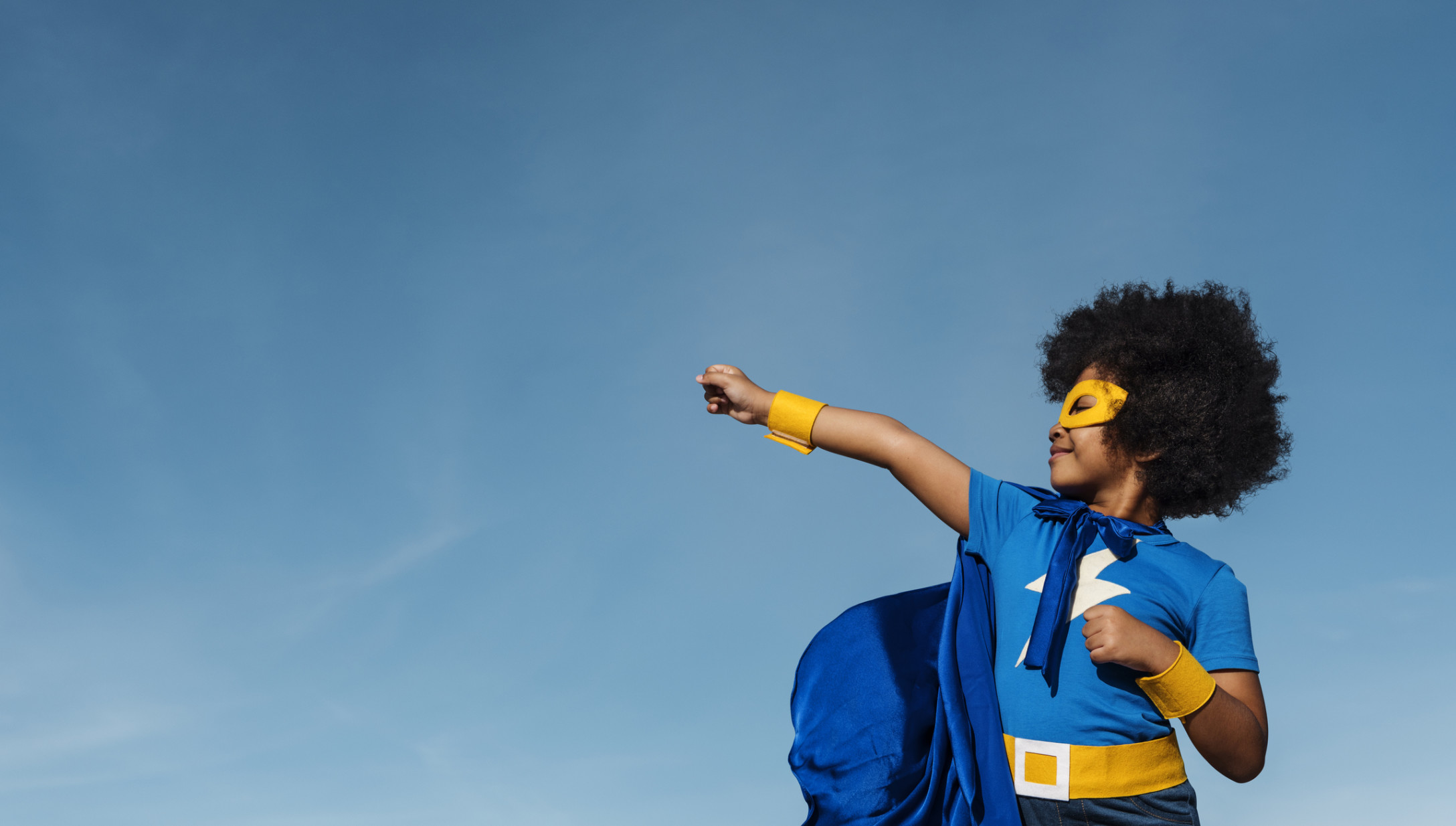
Every Sunday night, my daughter floats in the bathtub as I wash and condition her hair. Once the bubbles are all gone and the water is cool, she gets out of the tub, into her pajamas and settles on the floor with her tablet for some serious screen time. As she watches shows, I gently coax tangles out of her hair. Working section by section, I moisturize and detangle her gorgeous curls. An hour or more later, I’ll be finished and she’ll have her favorite hairstyle, a full Afro that she can decorate with barrettes or a cute headband.
What she does not have is a Halloween costume wig.
We are once again in October, which means that we are once again in the season where people can make Halloween costume choices that can range from mild cultural appropriation to fully racist, even though we should all know better by now. But every year, I see white people rocking synthetic (and cheap, tacky looking) Afro style wigs for costumes ranging from “random 1970s person” to “polyester neighborhood pimp,” as though wearing a wig in a hairstyle that is directly tied to the historical “Black is Beautiful” movement isn’t offensive.
Let me make this perfectly clear: Afro wigs on people who can’t grow their own Afros is cultural appropriation.
When my daughter wears her hair in an Afro, she is celebrating the beauty of her natural style. When we spend hours on carefully combing it out and trying to protect her strands, we are doing that because we believe that her hair doesn’t need to be straightened or pressed or made to look like anyone else’s.
One of my deepest dreams for her is that she understands herself to be beautiful, inside and out, just the way she is and that she knows that she (and her hair) get to take up as much space as she wants. I want her to live a life that is big and bold and for her to grow into a Black woman comfortable in her own skin. I want her to know her history as a person of color and to embrace the physical features that tell the story of her west African, Caribbean, and uniquely American roots.
When white people wear Afro wigs, they are making a joke out of a hairstyle that has deep meaning.
The history of Black hair is cultural and political and the Afro hairstyle came into prominence in a time when Black Americans were fighting for equal treatment and respect in a country that told them in overt and implicit ways that they weren’t as beautiful, respectable, or as entitled to basic rights as white people.
The Afro is more than a just a hairstyle.
Afro wigs on Halloween are designed to look silly, to provoke a comical reaction that comes from the idea that this kind of hairstyle is too big to be taken seriously. What’s even worse is when people pair it with costumes rooted in harmful stereotypes (like my middle age, middle class white neighbor who dresses as a pimp every year) or with accompanying blackface makeup.
Halloween is a time to dress up and be creative, but that never means it’s OK to make fun of or appropriate another culture along the way, no matter how groovy you think your disco outfit would look with a Diana Ross wig.




